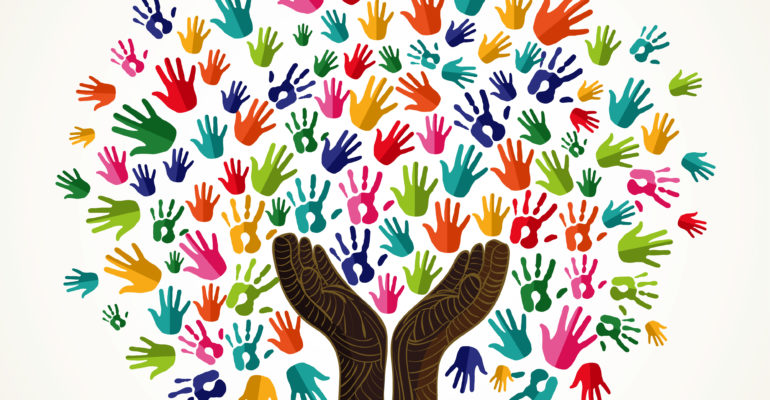Empowering Social Workers: Navigating Power Dynamics in Culturally Diverse Contexts

Empowering Social Workers: Navigating Power Dynamics in Culturally Diverse Contexts
Social Workers play a pivotal role in addressing the needs of individuals and communities, often in culturally diverse contexts. While the profession is rooted in principles of social justice[1] and equity, navigating power dynamics within diverse communities is a complex challenge. Here, we explore strategies for Social Workers to effectively navigate these dynamics and ensure culturally sensitive and inclusive practice.
Understanding Power Dynamics in Social Work
Power dynamics are inherent in the field of Social Work, but they become even more intricate in culturally diverse settings.[2] These dynamics can stem from various sources, including:
Cultural Hierarchies, Language Barriers, Implicit Bias, and Socioeconomic Factors:
Different cultures may have distinct hierarchies and power structures that impact how services are received and accepted, and language disparities can create imbalances in communication and understanding. Social Workers, like everyone, can have implicit biases that affect their interactions with clients from different cultural backgrounds. Further, economic disparities can influence the power dynamic between Social Workers and clients.[3]
Strategies for Navigating Power Dynamics:
Cultural Competency Training, Active Listening, Cultural Humility, and Interpreters and Bilingual Social Workers:
Social Workers are to continually engage in cultural competency training to enhance their understanding of different cultures, values, and worldviews; and practicing active listening allows Social Workers to better understand the needs and concerns of clients from diverse backgrounds. One can embrace cultural humility[4] by acknowledging that no one can fully understand every cultural nuance. One is then to be open to learning from clients and their experiences. Further, when language barriers[5] are present, the use of professional interpreters or bilingual Social Workers is essential to ensure effective communication.
Empowerment and Collaboration, Addressing Implicit Bias, Advocacy for Structural Change, Cultural Brokerage, and Self-Reflection and Supervision:
Social Workers empower clients by involving them in decision-making and treatment planning. Collaboration is to be at the core of Social Work practice. Social Workers are to recognize their own implicit biases and actively work to mitigate their impact on interactions with clients[6]. They also can advocate for systemic changes that address inequalities and power imbalances at a broader level. In some cases, a cultural broker, someone from the client’s culture who understands both systems, can help bridge gaps and facilitate communication[7]. The important thing is to engage in self-reflective practices and seek supervision to process and gain insights into complex cases.
Benefits and Challenges
Navigating power dynamics in culturally diverse contexts presents both benefits and challenges for Social Workers:
Benefits:
-
- Enhanced client trust and rapport
- More effective interventions
- Empowerment of marginalized individuals
- Improved cultural sensitivity
Challenges:
-
- Complexity of cultural diversity
- Time and resource constraints
- Potential discomfort when addressing power imbalances
- The need for ongoing education and self-reflection
In Conclusion
Social Workers serve as advocates and catalysts for change in diverse communities. By addressing power dynamics with cultural sensitivity, they can foster inclusivity, social justice, and improved well-being for all clients. Embracing cultural humility and actively working to minimize disparities are essential steps towards achieving these goals, ensuring that social work practice is equitable and responsive to the diverse needs of the populations it serves.
[1] Atteberry-Ash, Brittanie E. “Social work and social justice: A conceptual review.” Social Work 68.1 (2023): 38-46.
[2] del Mar Fariña, Maria, and Peggy O’Neill. “The Structural Clinical model: Disrupting oppression in clinical social work through an integrative practice approach.” Clinical Social Work Journal (2022): 1-12.
[3] O’Leary, Patrick, and Ming-sum Tsui. “Disrupting social work ethics.” International Social Work 66.3 (2023): 633-635.
[4] Gottlieb, Mara. “The case for a cultural humility framework in social work practice.” Journal of Ethnic & Cultural Diversity in Social Work 30.6 (2021): 463-481.
[5] Sauerborn, Nina. Language Barriers in Social Work with Language Minorities. Diss. Josip Juraj Strossmayer University of Osijek. Faculty of Law Osijek. Chair of Foreign Languages and Sociology, 2021.
[6] Bussey, Sarah Ross, Monica X. Thompson, and Edward Poliandro. “Leading the charge in addressing racism and bias: Implications for social work training and practice.” Social Work Education 41.5 (2022): 907-925.
[7] Lucas, Siân E. “Spoken language interpreters in social work.” (2020).








